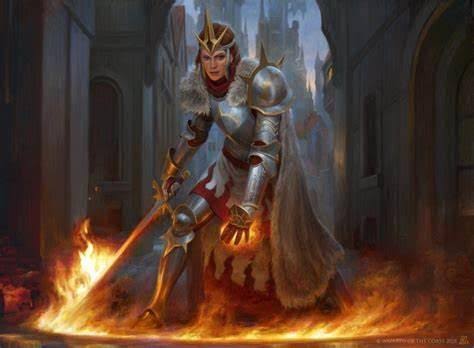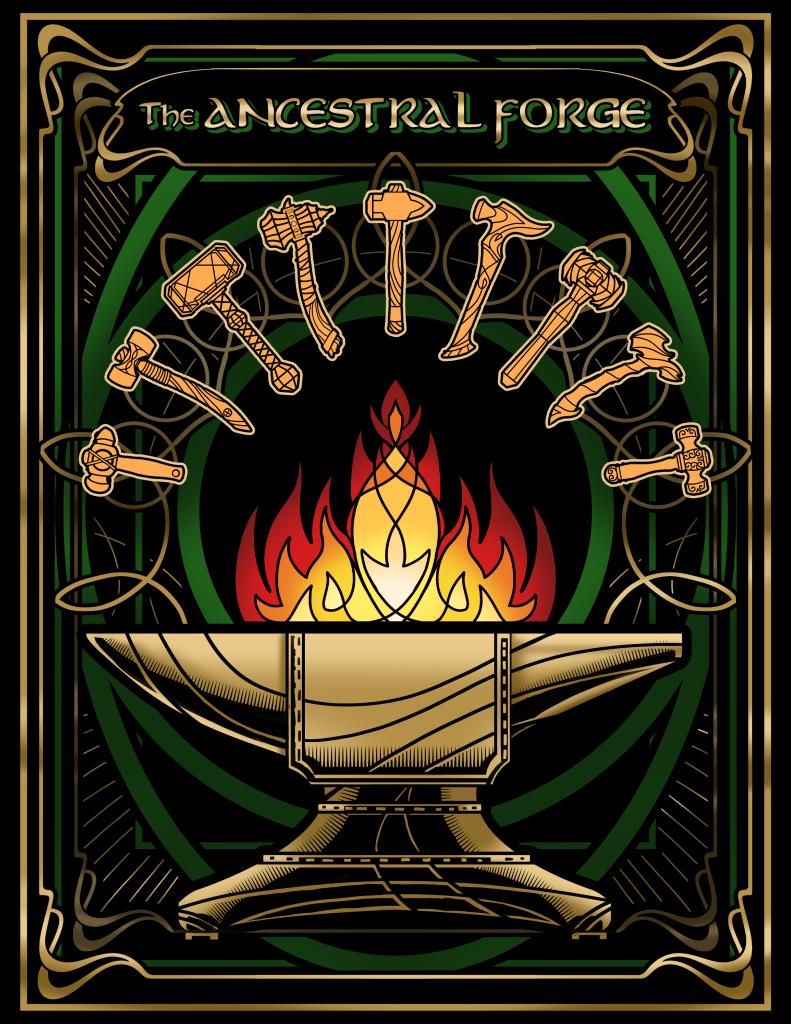D&D 5e: Order of Scribes Wizard Guide

D&D 5e: Order of Scribes Wizard Guide
Intro/Role in Party
The Order of Scribes Wizard is the wizardiest wizard to have ever wizarded. Your features revolve around scribing spells, using wizard spells more effectively, doing scholarly things, and being an overall book nerd.
Introduced in Tasha’s Cauldron of Everything, the Scribes Wizard is sometimes unfairly criticized for not having beefy features; however, most of its features pack a fairly large punch.
In general, you will be a normal wizard, but you will be more: more rituals, more spells per day, more versatility, more nerd skills, and so on.
Epic
Good
Meh
Bad
The Order of Scribes Wizard subclass is found in Tasha’s Cauldron of Everything. Click here to pick up your own copy of Tasha’s Cauldron of Everything!
Order of Scribes Wizard Features
Wizardly Quill
At 2nd level, as a bonus action, you can magically create a Tiny quill in your free hand. The magic quill has the following properties:
-
The quill doesn’t require ink. When you write with it, it produces ink in a color of your choice on the writing surface.
-
The time you must spend to copy a spell into your spell book equals 2 minutes per spell level if you use the quill for the transcription.
-
You can erase anything you write with the quill if you wave the feather over the text as a bonus action, provided the text is within 5 feet of you.
This quill disappears if you create another one or if you die.
There are two features on either side that aren’t big deals, but writing and erasing easily is cool I guess. Then the middle feature makes you scribe spells 60x faster than any other wizard, and 30x faster than even a school-based wizard can scribe their signature school of spells. Downtime scribing is now something you can do in a short rest. Nice, especially for a ribbon feature.
Awakened Spellbook
Using specially prepared inks and ancient incantations passed down by your wizardly order, you have awakened an arcane sentience within your spellbook.
At 2nd level, while you are holding the book, it grants you the following benefits:
-
You can use the book as a spellcasting focus for your wizard spells.
-
When you cast a wizard spell with a spell slot, you can temporarily replace its damage type with a type that appears in another spell in your spellbook, which magically alters the spell’s formula for this casting only. The latter spell must be of the same level as the spell slot you expend.
-
When you cast a wizard spell as a ritual, you can use the spell’s normal casting time, rather than adding 10 minutes to it. Once you use this benefit, you can’t do so again until you finish a long rest.
If necessary, you can replace the book over the course of a short rest by using your Wizardly Quill to write arcane sigils in a blank book or a magic spellbook to which you’re attuned. At the end of the rest, your spellbook’s consciousness is summoned into the new book, which the consciousness transforms into your spellbook, along with all its spells. If the previous book still existed somewhere, all the spells vanish from its pages.
You can swap out the damage types on all your damaging spells to avoid resistance. You get an extra casting of a ritual spell every day. Straightforward, nice, and fun. It even synergizes with your other level 2 feature, since the ability to scribe spells 60x faster means you don’t even need downtime to write down that Lightning Bolt you found earlier and turn your fire Fireball into a lightning Fireball and kill the demons instantly. And it’s good at every single level: did you find Weird on an enemy spellbook? Do you have Meteor Swarm prepared? Are you fighting demons immune to fire? Turn the fire damage into psychic damage and kill the demons instantly.
The ritual part is also especially good: sometimes you don’t have 10 minutes to spare, and sometimes you want to cast a ritual spell, but you don’t feel good about using a precious slot on utility when there are orcs to slaughter. This mitigates that. Overall, great feature.
Manifest Mind
At 6th level, you can conjure forth the mind of your Awakened Spellbook. As a bonus action while the book is on your person, you can cause the mind to manifest as a Tiny spectral object, hovering in an unoccupied space of your choice within 60 feet of you. The spectral mind is intangible and doesn’t occupy its space, and it sheds dim light in a 10-foot radius. It looks like a ghostly tome, a cascade of text, or a scholar from the past (your choice).
While manifested, the spectral mind can hear and see, and it has darkvision with a range of 60 feet. The mind can telepathically share with you what it sees and hears (no action required).
Whenever you cast a wizard spell on your turn, you can cast it as if you were in the spectral mind’s space, instead of your own, using its senses. You can do so a number of times per day equal to your proficiency bonus, and you regain all expended uses when you finish a long rest.
As a bonus action, you can cause the spectral mind to hover up to 30 feet to an unoccupied space that you or it can see. It can pass through creatures but not objects.
The spectral mind stops manifesting if it is ever more than 300 feet away from you, if someone casts Dispel Magic on it, if the Awakened Spellbook is destroyed, if you die, or if you dismiss the spectral mind as a bonus action.
Once you conjure the mind, you can’t do so again until you finish a long rest, unless you expend a spell slot of any level to conjure it again.
You use an action to create a floating head and send it into a room ahead of you. You see orcs. The orcs start yelling at the floating head. You cast Fireball through the floating head. The orcs all die, and you didn’t even need to visit the room yourself. You can do this 2-5 more times today. Nice.
Alternatively, you can send this into a room ahead of time and safely negotiate with enemies without risking your own life; hobgoblins are much more likely to listen to you through the equivalent of a zoom call since you can’t stab a zoom call to death and it’s unlikely that the enemies have Dispel Magic.
Also, the first use every day is free, and the duration is indefinite.
Master Scriviner
At 10th level, whenever you finish a long rest, you can create one magic scroll by touching your Wizardly Quill to a blank piece of paper or parchment and causing one spell from your Awakened Spellbook to be copied onto the scroll. The spellbook must be within 5 feet of you when you make the scroll.
The chosen spell must be of 1st or 2nd level and must have a casting time of 1 action. Once in the scroll, the spell’s power is enhanced, counting as one level higher than normal. You can cast the spell from the scroll by reading it as an action. The scroll is unintelligible to anyone else, and the spell vanishes from the scroll when you cast it or when you finish your next long rest.
You are also adept at crafting spell scrolls, which are described in the treasure chapter of the Dungeon Master’s Guide. The gold and time you must spend to make such a scroll are halved if you use your Wizardly Quill.
An extra 3rd level spell slot that can be used for upcasting. Meh. Cheaper and faster spell scroll crafting could be useful in some campaigns, but the crafting rules are kind of terrible and I rarely see spellcasters try to scribe scrolls in a campaign, so I won’t factor that into the overall power of the class.
One with the Word
At 14th level, your connection to your Awakened Spellbook has become so profound that your soul has become entwined with it. While the book is on your person, you have advantage on all Intelligence (Arcana) checks, as the spellbook helps you remember magical lore.
Moreover, if you take damage while your spellbook’s mind is manifested, you can prevent all of that damage to you by using your reaction to dismiss the spectral mind, using its magic to save yourself. Then roll 3d6. The spellbook temporarily loses spells of your choice that have a combined spell level equal to that roll or higher. For example, if the roll’s total is 9, spells vanish from the book that have a combined level of at least 9, which could mean one 9th-level spell, three 3rd-level spells, or some other combination. If there aren’t enough spells in the book to cover this cost, you drop to 0 hit points.
Until you finish 1d6 long rests, you are incapable of casting the lost spells, even if you find them on a scroll or in another spellbook. After you finish the required number of rests, the spells reappear in the spell book.
Once you use this reaction, you can’t do so again until you finish a long rest.
You take 700 damage from the nuclear bomb that Demogorgon was building in his basement. You use your reaction to take none of the damage. Nice. Slightly redundant with Absorb Elements and Shield and Counterspell, and there’s only one use per day, but still great.
There’s also the part about temporarily losing spells, but you’re level 14 and probably have a bunch of useless spells in your book anyway. Just get rid of those.
Strengths
You’re one of the best damage dealers of any wizard and one of the best utility casters of any wizard. Ignoring resistance and just having more spells and being able to send a ghost head into rooms to do things is fantastic. You also do not require downtime to get new spells, so you can do it in campaigns operating on a very short time scale.
Weaknesses
Your level 2 feature depends on the dungeon master handing out spell scrolls and enemy wizard spellbooks; they should be doing this regardless of your subclass, but it’s not good for a feature to vary in power based on your dungeon master and campaign type.
Nothing here except for the level 14 feature that boosts your defense, so you should try to fix that somehow.
Best Race Options
The Autognome boosts your defense and concentration saves by giving you the equivalent of permanent Mage Armor and a d4 you can add to anything 2-6 times per day. Being a construct also comes with some benefits against some enemy spells.
A Loxodon never forgets… to cast Fireball! This elephant-themed race lives a long time and is suitable for a nerdy wizard, and the ability to calculate your AC as 12+constitution modifier and still use a shield helps solve the armor class problem. They also come with a variety of cool and useful features like Powerful Build and advantage against being charmed or frightened.
Githzerai are a bunch of nerds and come with several useful features, such as an invisible mage hand and the ability to read minds.
Choosing the Right Skills
You are a certified bookworm. Arcana, History, Nature, and Religion are all vital, and if you read detective novels, grab Investigation too.
Perception is the most important skill in the game, so grab it.
If you want to work out at both the library and the gym, snag Athletics and/or Acrobatics proficiency.
A well-read wizard exposed to a lot of good prose could justify taking proficiency in Persuasion to represent their ability to make logical arguments. However, your charisma probably isn’t that high.
Fitting Feats
Keen Mind will turn you into the ultimate galaxy brained wizard by giving you an insanely good memory. You can recall anything you’ve observed within the past month, which can come up often in some campaigns, and you have a good sense of time and direction, and it’s a half feat that can boost intelligence or wisdom.
You’re the nerdiest wizard and you’re only proficient in Arcana? Nonsense. Take Skill Expert at some point to turn that into expertise. It’s also a half feat that can boost any stat.
You already have amazing spell versatility, but the problem is that people don’t like it when you cast Detect Magic on all their stuff or Detect Thoughts on their brains. Use Metamagic Adept and take Subtle Spell metamagic to make this a non-issue, then pick your next favorite metamagic. Extend Spell is my personal #2 pick on a wizard with this feat.
Optimal Backgrounds
Cloistered Scholars live in libraries or at least work in them. I don’t need to explain how this works thematically. You can also use your librarian clout to get into other libraries all across the world.
Nobles are rich, and rich people tend to own a lot of books. Maybe your noble family was rich enough to provide you with the best learning possible, then you took up wizardry.
Silverquill Student is one of the most powerful background options, gives an expanded spell list, and gives you a free feat. It’s not allowed at all tables, but this and the other Strixhaven backgrounds are thematic for once instead of being pure power options.
Multiclassing Options
One level of Order Cleric will give you proficiency in all armor, versatility through low level cleric spells, and the delicious Voice of Authority. The “fireball your allies to give them a reaction attack” trick is viable on this character since you can change the damage type of the fireball to something your ally is resistant or immune to. Tempest Domain’s Channel Divinity is also useful since you can make lots of spells deal lightning or thunder damage.
Starting your career with a level of Artificer will give you constitution saving throw proficiency, proficiency in all armor but heavy, useful spells, and more. A solid choice for any wizard.
There’s a strange multiclass you can do with a few levels of Scout Rogue. You can move as a reaction, so you could upcast Ashardalon’s Stride, change it to deal any damage type you want, damage a bunch of enemies, and then do it all again as a reaction when enemies end their turn near you. Add Tempest Domain cleric levels for max damage lightning fireballs and slots you can use to upcast Ashardalon’s Stride. I’m not sure how viable this is in actual play, but the damage is decent on paper and the versatility is stellar. Your main concern will be keeping concentration on Ashardalon’s Stride since you’re near enemies all the time.
Would I recommend playing an Order of Scribes Wizard?
I would absolutely recommend the Order of Scribes wizard in nearly any campaign. It’s on the stronger side of wizard subclasses and will help you at any level. It’s better if your dungeon master hands out a lot of scrolls and spellbooks though.









